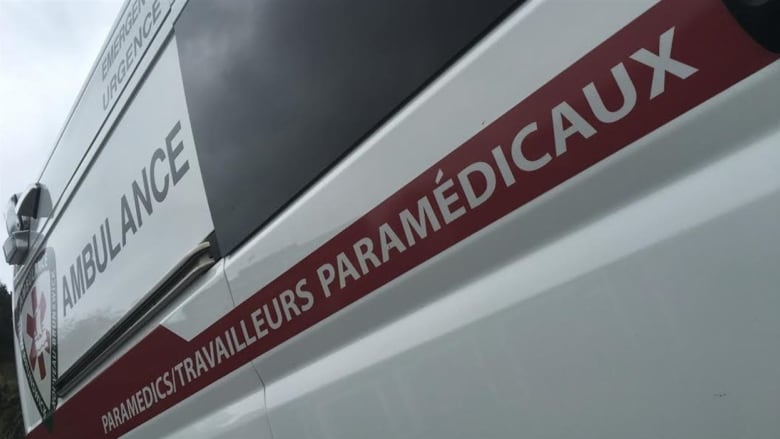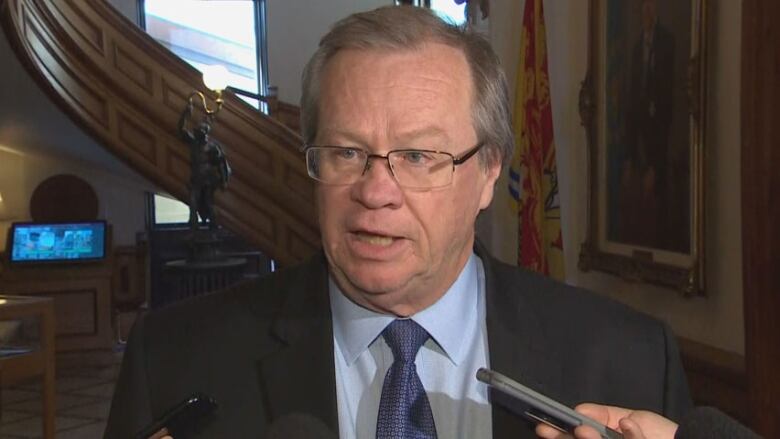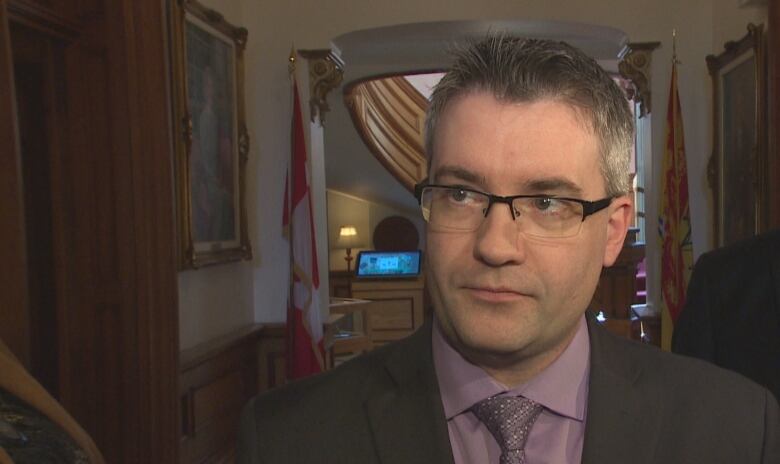ANB hiring blitz doesn't quell MLA's concerns about bilingual service, response times
People's Alliance Leader Kris Austin says there are still gaps in system

Ambulance New Brunswick has hired dozens of unilingual paramedics who weren't able to get permanent, full-time work before changes to the organization in the last six months, the organization says.
They have filled jobs in a new hospital-transfer system and in new float teams, positions that don't require bilingual qualifications and that were set up to address slow response times elsewhere.
Health Minister Ted Flemming recited the numbers in the legislature to fire back at the Opposition Liberals, who have been questioning the Progressive Conservatives' commitment to bilingual ambulance service.
"We use language to unite, not to divide," Flemming said after reeling off the numbers.

But he was unable to provide statistics showing success reaching the broader goal of reducing the number of idle ambulances and incidents of slow response times.
Larger issue unresolved
The hiring of more unilingual paramedics into non-bilingual positions pleased People's Alliance Leader Kris Austin, who raised the issue repeatedly last year and worked with the PC government on the new transfer and float-team systems.
"That was the goal," he said. "That's what we had talked about when we worked that strategy out."
But Austin said it hasn't resolved the larger problems in the system.
The exchanges came a day after a Court of Queen's Bench judge ruled the province can't weaken bilingual hiring requirements for paramedics without violating the Official Languages Act and the Charter of Rights and Freedoms.
Medavie has said repeatedly that its inability to fill bilingual positions at Ambulance New Brunswick is not the cause of slower responses because it always puts a unilingual casual employee in place.
Last November, the Higgs government announced the first of two steps to close the service gap: a dedicated fleet of ambulances for scheduled transfers between hospitals.
By booking transfers ahead of time, hospitals could specify the language choice of the patient and avoid the need for a bilingual paramedic. That would free up existing bilingual employees for more emergency shifts, reducing shortages and slow response times.
LISTEN:Acadian Society applauds decision protecting equal rights to ambulance service in French and English
Both Flemming and Medavie spokesperson Chisholm Pothier said 50 unilingual paramedics 38 English-speaking and 12 French-speaking have been hired for the service.
In January, the province announced a second step, the creation of "float teams" made up of permanent full-time unilingual paramedics who would move around to fill gaps until bilingual paramedics are found.
Flemming and Pothier said 32 out of 33 permanent, full-time positions on new float teams have also been filled, all by unilingual paramedics. Among them are 20 former casual employees and six former part-time employees.
Austin pushes for 'common sense'
But Austin said in the legislature this week there are still gaps in service. He said 31 ambulances scheduled to be in service around the province on Saturday were not. And he said in Saint-Quentin, six paramedic positions remain unfilled.
"While we're hiring some unilinguals through this floater system, it's a good step, but it's by no means the end-all, be-all to fixing this crisis."

He again called for the government to apply "common sense" to language requirements despite Wednesday's court ruling that the province can't change them.
Austin said he couldn't reveal the source of his information but it was credible and came from someone with inside knowledge.
But Medavie's Pothier said only 10 emergency ambulances were out of service for an entire shift. Eight were out of service on the night shift.
Flemming told reporters the government would ask Medavieabout Austin's claims.
"They have targets they're supposed to meet, and we stay on top of it, and when those targets aren't where they should be, we find out why."
Complains of bumping
Austin also complained this week that two bilingual advanced-care paramedics had "bumped" two unilingual employees out of their positions. Advanced-care paramedics provide a higher level of emergency care.
Chisholm Pothier, a spokesperson for Medavie, which runs ANB, confirmed that all advanced-care paramedic positions are designated as bilingual because they work alone and sometimes are the first to respond to a call.
He said the advanced spots are sometimes filled temporarily by unilingual paramedics until someone with bilingual qualifications is hired.
When that happens, the unilingual employees return to their regular paramedic positions.












_(720p).jpg)


 OFFICIAL HD MUSIC VIDEO.jpg)
.jpg)



























































































